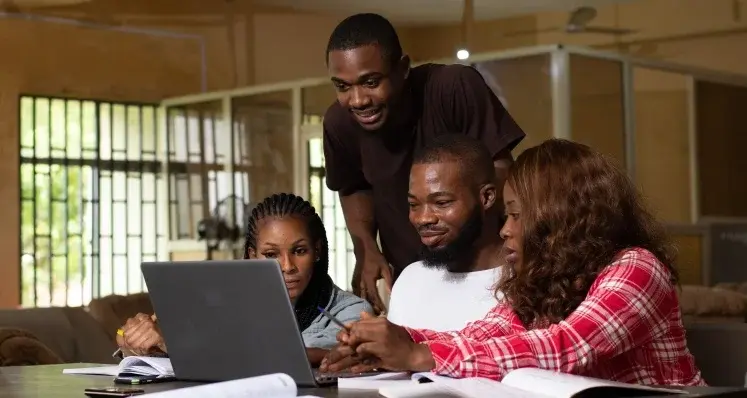Speaking to a select group of media and industry stakeholders at AfricaCom 2013, SES SVP Commercial Africa Ibrahima Guimba-Saidou offered analysis of commercial and communications developments across the continent
Guimba-Saidou spoke, also, of how the world is shifting towards greater and more sustainable engagement in African communications and broadcast ecosystems. He suggested that Africa must not be regarded as a global village, whereby a particular set of solutions might apply to resolve issues affecting deployment and utilisation of information and communications technologies. He stressed, also, that not every solution need be technological. Rapid population growth is one factor, but the emergence of a new form of middle class culture and economy is another.
Africa is also becoming more investor-friendly and less risky in terms of financiers' perspectives. Corporate governance is increasingly observed, so revenues and profitability are more closely aligned to corporate business models – so employment and entrepreneurship are the realities in countries where previously conditions for commerce may not have been strong.
With respect to the utilisation of ICT, Guimba-Saidou cited the success of mobile communications, which has been well-catalogued over the past decade, in terms of innovation and inclusion; there are now nearly one billion subscribers in Africa, with plenty of evidence of societal and industrial or corporate transformation through utilisation.
Stepping forward, creating communities, generating revenues
SES is keen to continue active investment, to share its experiences and form new strategic partnerships – particularly with respect to digital connectivity, which remains a key point of concern at corporate and governmental levels. So, the next step is to step up support and increase efforts towards technological complementarity, which Guimba-Saidou is driving forward at SES. He is involved, for example, in building business on the back of investment by SES in O3B, which delivers high throughput mid-Earth orbit satellite capabilities.
Guimba-Saidou also cited fibre as an example of a technology, which need not be considered competitive – but, in terms of serving digital migration, needs to be considered complementary to satellite operation.
Moreover, communications and broadcasting sectors need not be treated as distinct. They need to cross-reference content and services' provision, and they can draw on the same or similar technical solutions to achieve reach and access - and so they can tap into revenue streams that can serve fresh rounds of commercial investment whilst also serving socio-economic growth.
Adding a satellite component to the televisual experience
Africa is seen as the last frontier for ICT enterprises seeking profit margins, as well as governmental and non-governmental stakeholders seeking greater inclusivity. And there is significant momentum now, as private and public sector entities converge on similar targets. So, why would half a billion people need to wait for improved communications and content provision? As Guimba-Saidou said, "People who live in remote Africa are no different to other Africans."
Guimba-Saidou observed that satellite could serve now, those in the most remote areas as equally as those in urban areas, the consumption of content and the creation of content. Television plays a part equal to satellite telecommunications. The ways in which SES can enable creation of, access to, and utilisation of content, bear the lessons of digital transition elsewhere – for example, in mainland Europe – and are ready to applied to different African environments, with closer industry collaboration acting as a key to new opportunities for IP-based inclusion and consumer-based socio-economic growth.
"We are close to a tipping point. 2015 is the year in which many African countries are set to make the transition. Not all will make it, but there will be a strong push, and increasing organisation towards transition. Progress is being made," said Guimba-Saidou. "We have invested to help Africans get there."
Guimba-Saidou promised, then, that there will be many developments in the coming year, ameliorating both broadcasting and communications, with new players emerging – following in the footsteps of exemplary firms such as Zuku in East Africa. To which we at Communications Africa/Afrique would make a suggestion of our own – watch this space.





















